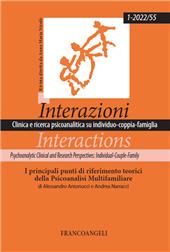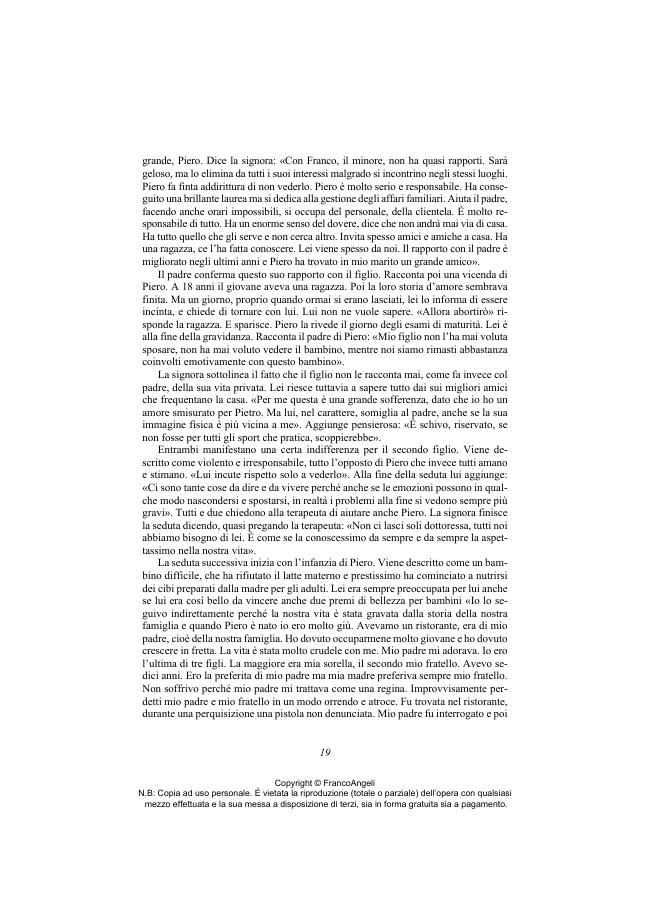Il bambino come "terapia" della difesa maniacale post-traumatica genitoriale
13-25 p.
Con questo mio contributo vorrei portare una critica articolata alla scarsa attenzione rivolta ai diversi processi della funzione cosiddetta di genitorialità e, allo stesso tempo, considerare questi processi come aspetti collusivi inconsci che spesso sono fondamentali, non solo per la fenomenologia del rapporto tra i partner, ma anche per un preciso rapporto tra la sintomatologia dei figli e gli aspetti della patologia collusiva organizzata dalla coppia. Questa affermazione implica tutto il complesso campo della selezione del compagno o della scelta oggettuale coniugale. Questa reciprocità collusiva emerge in una varietà di forme. Ad esempio motivazioni reciproche di individui deprivati, traumatizzati, shoccati, o profondamente depressi a scegliere partner analoghi per perpetuare il proprio stato d'animo senza investire o essere investiti affettivamente dall'altro: "Come posso parlare del mio dolore conoscendo l'immensità del tuo!".
È stata sottolineata da Winnicott, a questo proposito, la "Falsa Restituzione" dei figli nei confronti dei genitori. Questa falsa restituzione e riparazione si esprime attraverso l'identificazione del bambino con la parte dei genitori che non ha subito la dissociazione della difesa maniacale, cioè con la loro parte più profonda, traumatizzata e terrifica, il luogo dove ogni loro difesa maniacale fallisce, il punto dolente, mai elaborato, l'interruzione traumatica dei loro rispettivi Sé, che ha acquisito il senso di un punto di non ritorno. C'è come un tentativo onnipotente da parte del bambino di ristabilire la continuità. [Testo dell'editore].
With this contribution of mine I wish to bring an articulated criticism to the scant attention paid to the several processes of the so called function of parentality and, at the same time, to consider these processes as unconscious collusive aspects that are often fundamental not only for the phenomenology of the relationship between partners, but also for a precise relation between the symptomatology of the children and the aspects of collusive pathology organized by the couple. This statement implies the whole complex field or the choice of the partner.This collusive mutuality emerges in a variety of forms. For example, mutual motivation of deprived, traumatized, shocked or deeply depressed individuals, to choose similar partners in order to perpetuate their mood without investing or being invested affectively by the other: "How can I speak of my own grief knowing the immensity of yours!".
In this connection, Winnicott pointed out the "False Restitution" of the children towards the parents. This false restitution and reparation espressi t self through the identification of the child with the part of the parents that did not went through the dissociation of manic defence of theirs fails, the painful core, never worked through, the traumatic interruption of both their selves, that senses like a non turning point. There is in the child a sort of omnipotent attempt to reestablish continuity. [Publisher's text].
Forma parte de
Interazioni : clinica e ricerca psicoanalitica su individuo-coppia-famiglia : 55, 1, 2022-
Artículos del mismo número (disponibles individualmente)
-
Información
Código DOI: 10.3280/INT2022-001003
ISSN: 2239-4389



